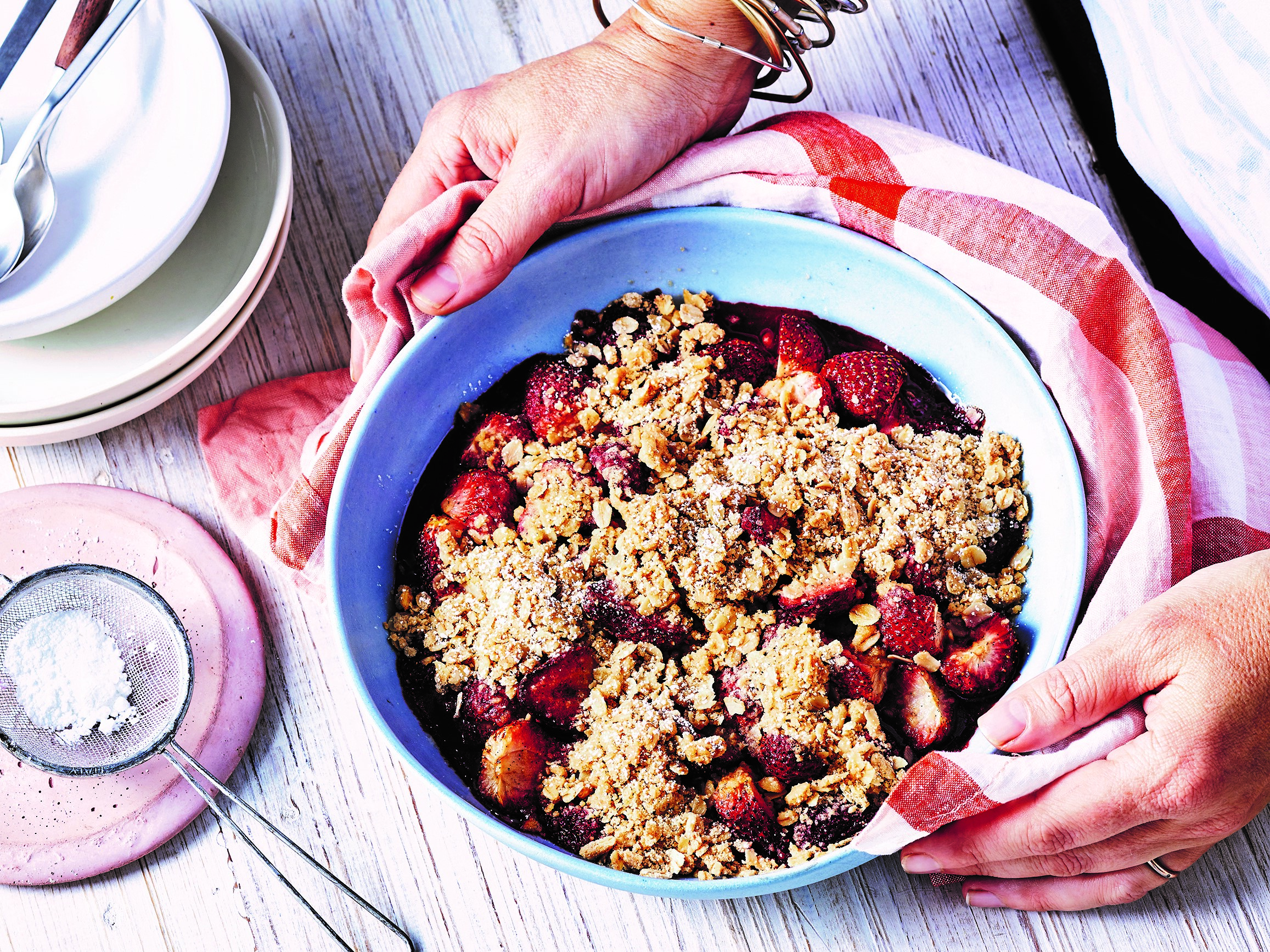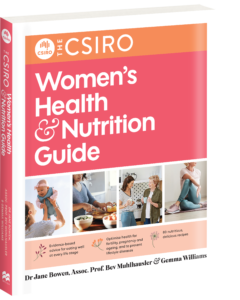
Recipes like strawberry crumble from the new CSIRO Women’s Health and Nutrition Guide can promote good health for you and your baby.
Pregnancy – what better motivator is there to eat well?
During pregnancy, advice around what to eat and drink often focusses on food safety. But there is much more to eating well than minimising risk.
The CSIRO Women’s Health & Nutrition Guide provides the facts on what to eat and how much to nourish you and your baby during pregnancy. It busts some myths so you can eat well, and give your baby the healthiest possible start in life.
What foods to eat and how much is enough?
When you’re pregnant, you provide all the nutrients for your baby. But despite the age-old saying of eating for two, the amount of extra food required during pregnancy is surprisingly low.
No extra energy is needed in the first trimester. But this changes slightly in the second and third trimesters when extra nutrients are needed.
To meet these needs, add about three extra servings of core foods each day with one being an extra serve of vegetables. Choose foods from the six core food groups:
- Vegetables, particularly those of the green and orange variety
- Fruit
- Gain foods, mostly wholegrain and or high-fibre varieties
- Lean meat and poultry, fish, eggs, tofu, nuts, seeds and legumes
- Milk, yoghurt, cheese and or their alternatives
- Healthy oils and fats
It’s also best to avoid food and drinks high in added sugar, salt and saturated fat as these can be transferred to the baby.
Healthy weight gain in pregnancy
Gaining weight while you’re pregnant is important. Remember you’re growing a little person. Each pregnancy is different so there is a weight gain range appropriate for you.
For the first three months, you won’t gain much weight. It will be up to two kilograms.
Your weight will gradually increase until your baby is born. Gaining too much or too little weight can cause problems for you and your baby. Your doctor, midwife or obstetrician will monitor your weight and help you stay healthy.
Adding supplements
If you’re eating well, you’re probably meeting your dietary needs without taking supplements. A healthy pregnancy diet needs to include plenty of calcium-rich foods, meat or meat alternatives, wholegrains and fresh fruit and vegetables.
However, the Australian National Health and Medical Research Council recommend those who are pregnant take folic acid both prior to and in the first trimester as well as iodine throughout pregnancy. There is also evidence that taking an omega-3 supplement can reduce the chance of pre-term birth in women with low omega-3 levels.

The CSIRO Women’s Health and Nutrition Guide gives you the facts on foods to eat throughout every life stage, including pregnancy.
There are other supplements that may benefit some people during pregnancy. Speak to your GP, midwife or obstetrician about the right supplements for you.
Drink more water
Drink more water than you normally would. You’ll need about nine cups or 2.25 litres of fluid per day. Fluids include water, milk and the liquid in some foods.
What to avoid
When it comes to alcohol, smoking and other drugs, the safest option is to opt-out. These drugs pass through the placenta and can lead to complications including miscarriage, stillbirth and birth defects.
For more information, check out The CSIRO’s Women’s Health & Nutrition Guide by Dr Jane Bowen, Associate Professor Bev Muhlhausler, Gemma Williams, Dr Jessica Grieger, Dr Naomi Kakoschke. Link to buy it below!


29th June 2021 at 10:56 pm
Thanks for you very
30th April 2021 at 11:33 am
Nice read. Thank you. My wife and I are vegan and pregnant. I found this literature review to be extremely valuable in appropriately planning vegan meals for a vegan mum-to-be: https://www.andeal.org/vault/2440/web/JADA_VEG.pdf